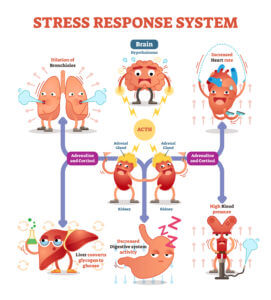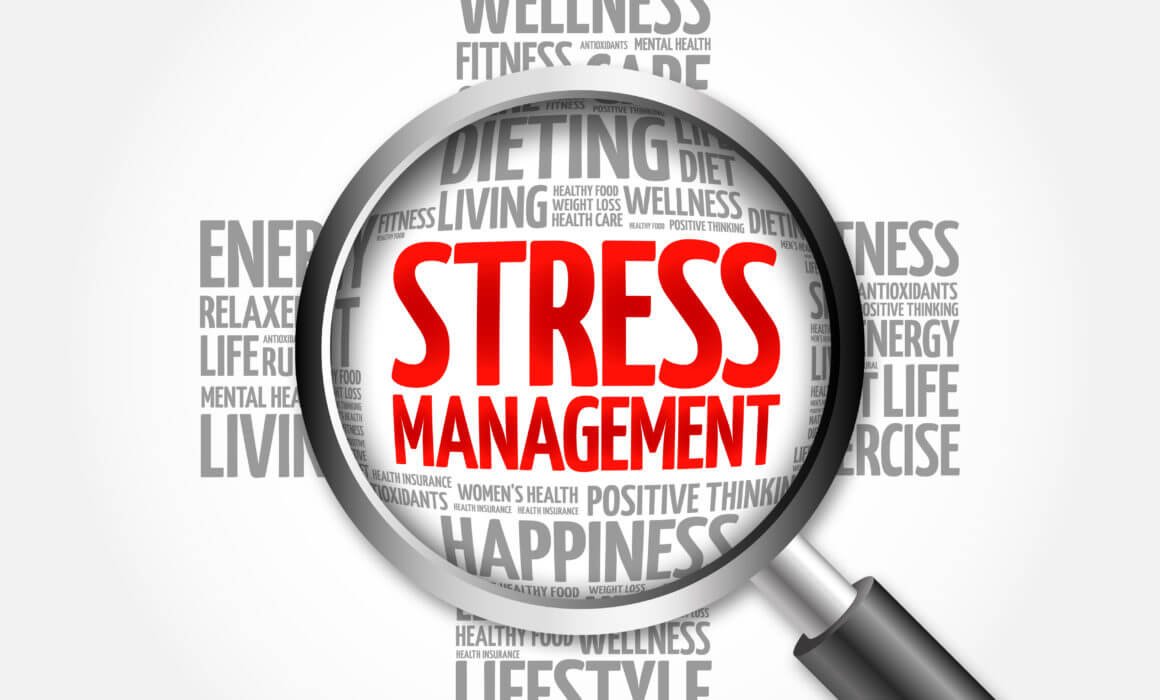Quick Beginner’s Guide to Stress Management
When it comes to reducing stress, you first need to understand what happens in your system so you can cope effectively. Lucky for you, we’ve managed to condense the basics into this quick beginner’s guide to stress management.
But did you know that stress is not all that bad?
Beginner’s Guide to Stress Management
Positive vs Negative Stress
Yes, apparently there are two kinds of stress: positive or eustress and negative or distress.

Positive and Negative Stress Management
How are they different?
Eustress is typically associated with positive changes such as getting married, landing a job, or getting pregnant. This kind of stress motivates and excites us. You feel challenged in a good way, become focused, and do our best to be productive.
On the other hand, distress includes having financial difficulties, a deadline getting near, losing a loved one, or getting sick. In this case, you might feel worried or overwhelmed.
What’s interesting is a lot of the impact of stress on us depends on how we look at it. This means when you see a situation as something positive then even if it’s technically distress, you might not feel stressed. And the other way around.
Stress is personal so what might be stressful for you may be a walk in the park for others. Stress management is self-care.
For instance, your deadline for a project (distress) is looming. But if you see this as a challenge and start focusing your energy to beat the deadline, it becomes good stress.
Meanwhile, if you recently got a job (eustress) but don’t feel like you really know what you’re doing, things can quickly become stressful for you. So, something positive becomes a negative experience.
And so, you feel stressed — physically, mentally, and emotionally.

Body’s Response to Stress
What Happens to the Mind and Body Under Stress?
When you sense threat or danger, your body shifts quickly into high gear in automatic stress response or the so-called “fight or flight” reaction.
As your body gets into this stress mode, it releases stress hormones such as adrenaline and cortisol, which springs all the bodily systems to action. Your heart beats faster, your muscles contract, you breathe more quickly, and your senses become hyper-focused. This way, you’re ready to fight or make a run for it.
However, when you become chronically stressed, your mind and body are in a heightened state most of the time. And this can lead to health problems such as pain, sleep problems, digestive issues, depression, anxiety, and even autoimmune diseases.
Stress Management Techniques
Now, let’s talk about how you can manage stress well using some evidence-based techniques. You probably already know the basics like getting enough sleep, good nutrition, exercise, and having emotional support.
But we’ll share with you some important details you need to know.
Exercise

Reiki Love Yoga For Stress Reduction
When it comes to using exercise for stress reduction, the American Heart Association recommends having a 30 minute-workout 5 days a week.
When you get moving, this pumps up endorphins which make you feel good and protects you from the negative effects of stress. Moreover, focusing on this activity can help boost your mood and reduce symptoms of anxiety and depression.
And exercise doesn’t have to be a full gym workout. You can get moderate exercise by mowing the lawn, cleaning the house, or running after your kids.
You might also find doing yoga helpful for dealing with stress. While there are many forms of yoga, one type of yoga called reiki yoga, seems promising in dealing with pain and anxiety.
Deep Breathing
When you’re stressed out, this is the quickest way for your body to calm down. You just need a few minutes to quietly breathe through your nose and out through your mouth. To help the lungs get filled more effectively, you can do diaphragmatic breathing by pushing your abdomen out as you inhale and lowering it as you exhale.
Meditation
Meditation is focused attention. Usually, you find a quiet place, do deep breathing, and become aware of your thoughts and body.
How are you feeling at this very moment? Observe your thoughts. When you meditate, it’s not about achieving goals but letting things be.
At EveryBody in Mind Wellness Center, we offer several wellness technologies that can support your meditation practice.
You can try our Somadome Meditation Pod which is like a comfy cocoon that relaxes with music. There’s also Ajna Light Meditation which can help calm your mind with flickering lights.

Crystal Bed Therapy for Stress Reduction
And if you want to explore crystal energy, you might want to go for a Crystal Bed Therapy session. This treatment uses color, flickering lights, sound, and intention to help you deal with stress.
So, if you find yourself dealing with more than you can handle, do visit us.


